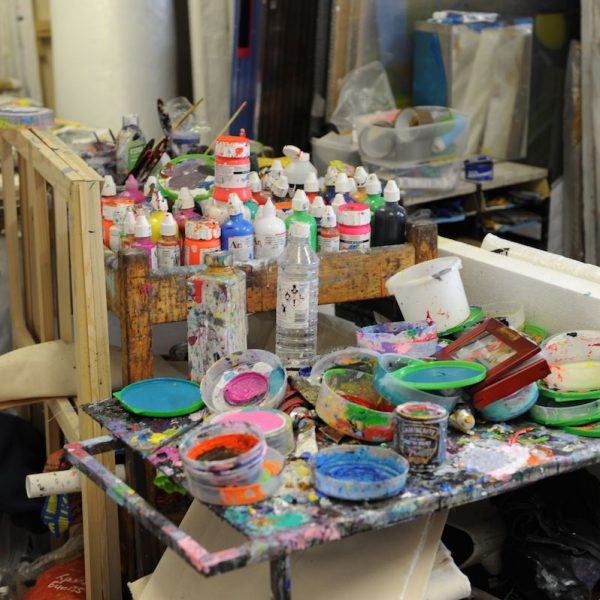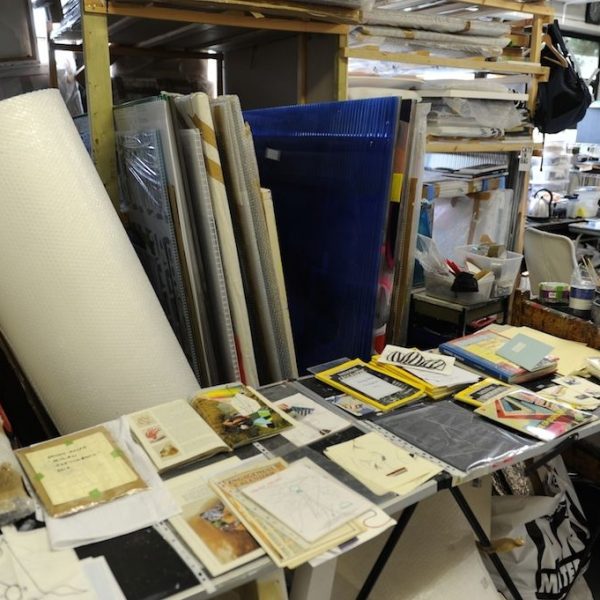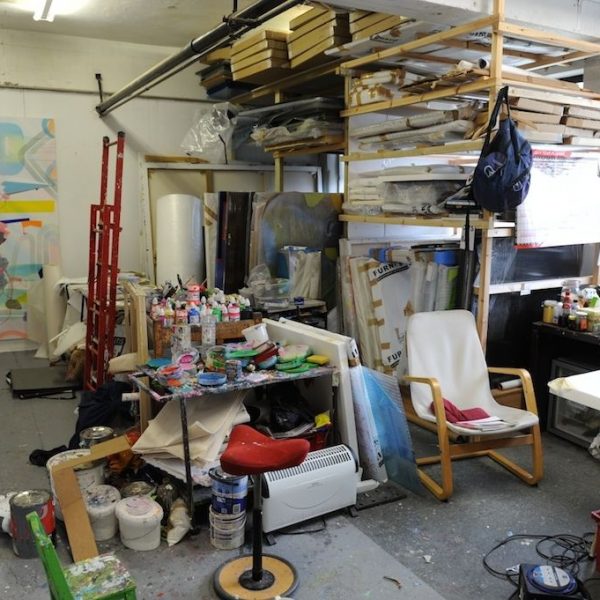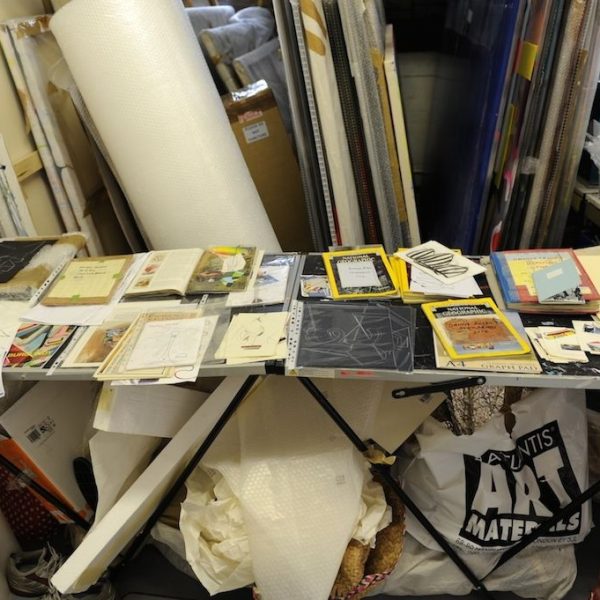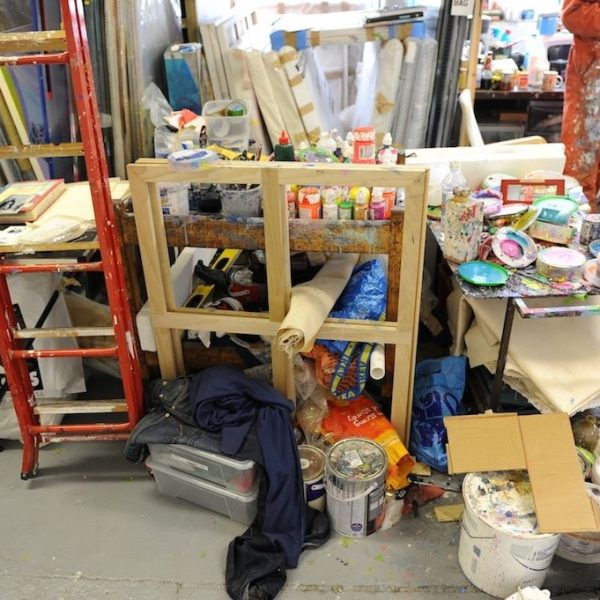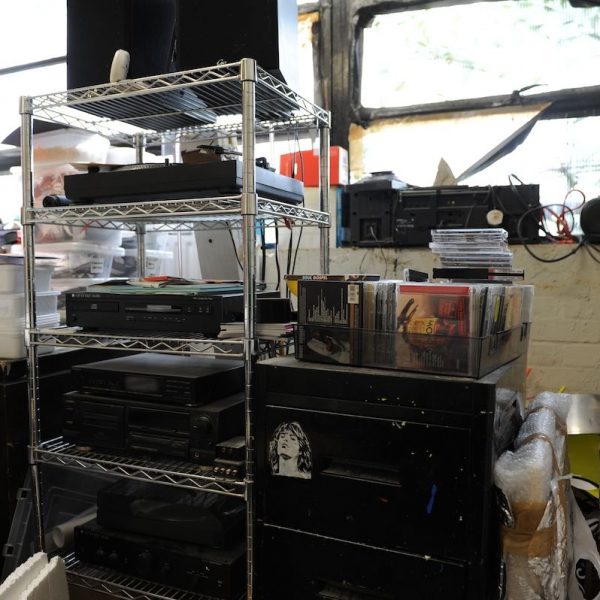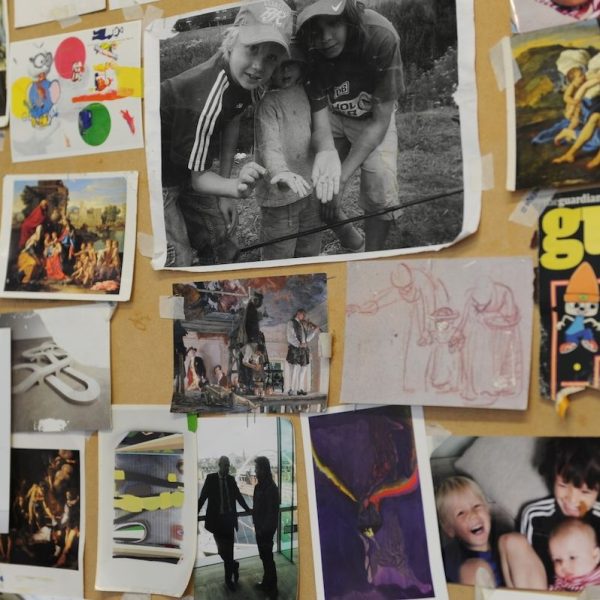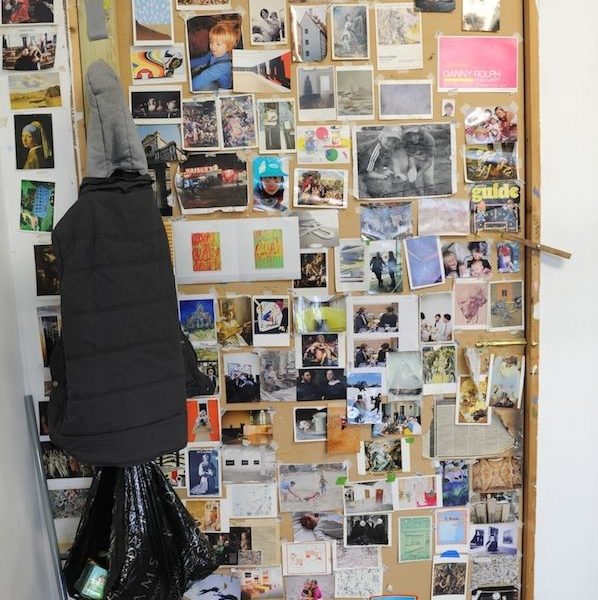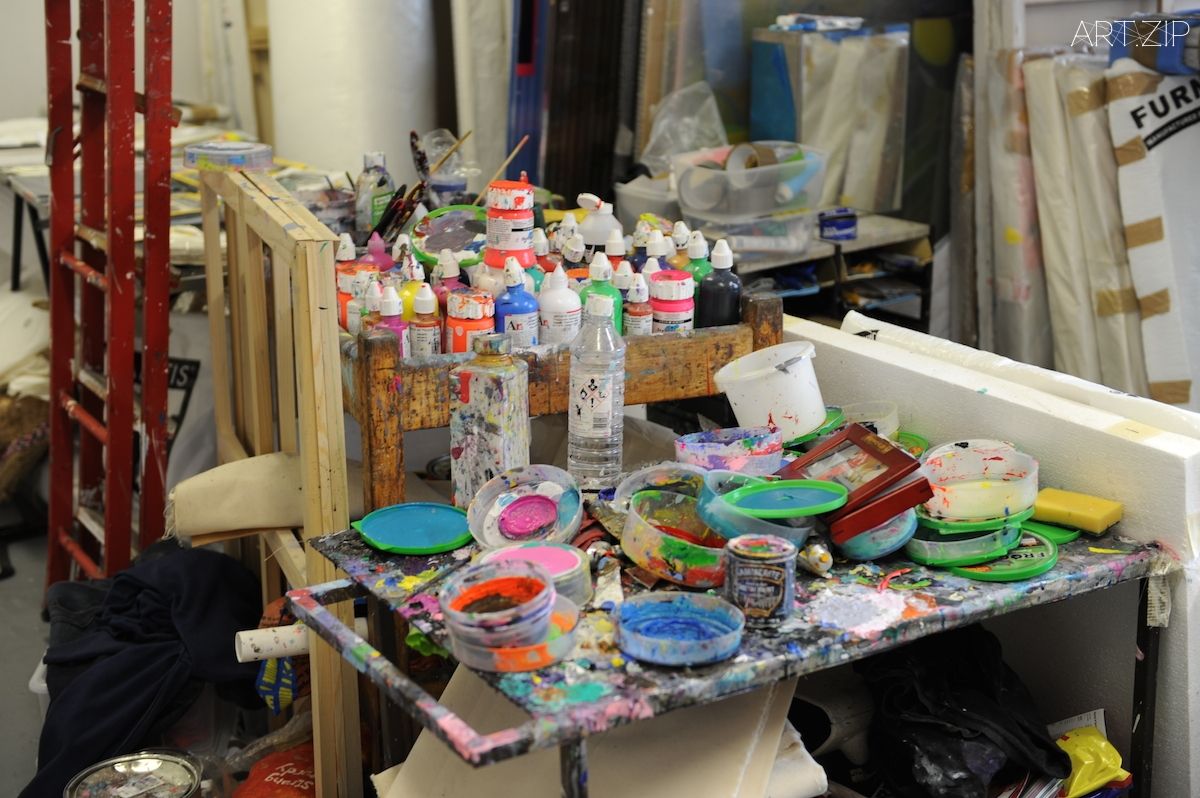
TRANSLATED BY 撰文 x BOWEN LI 李博文
IMAGE COURTESY BY 圖片提供 x DANNY ROLPH 丹尼·羅爾夫
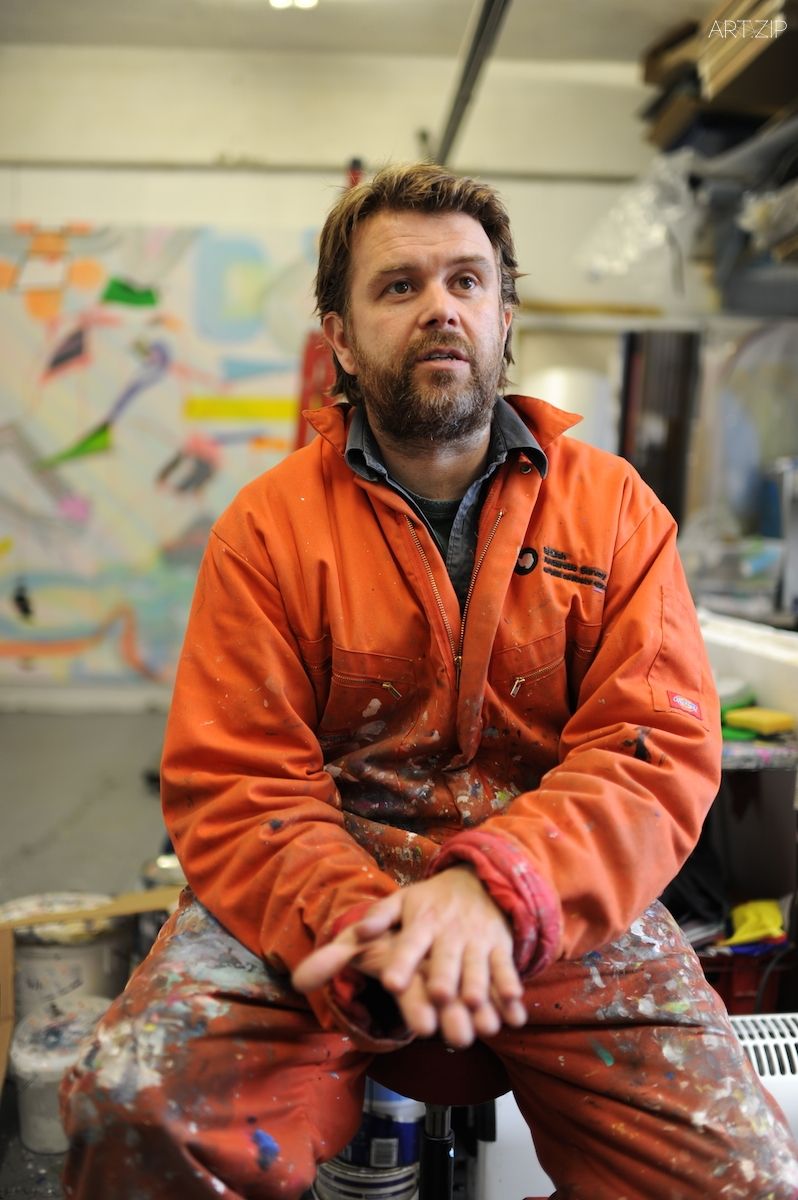 British artist Danny Rolph excels in juggling his artistic practice, international exhibitions, teaching in numerous prestigious institutions, and family life. Always enthusiastic and impeccably friendly, Rolph is an artist of formidable determination who enjoys the uncertainty in his artistic creation, maintains a certain British privacy and at once a warm hospitality, and deals brilliantly with all aspects of life in and out of his cozy studio.
British artist Danny Rolph excels in juggling his artistic practice, international exhibitions, teaching in numerous prestigious institutions, and family life. Always enthusiastic and impeccably friendly, Rolph is an artist of formidable determination who enjoys the uncertainty in his artistic creation, maintains a certain British privacy and at once a warm hospitality, and deals brilliantly with all aspects of life in and out of his cozy studio.
英國藝術家丹尼·羅爾夫在日常藝術實踐、國際展覽、學院教學以及家庭生活之間實現了完美的平衡。羅爾夫熱情、友善而堅定,他享受自己藝術創作中的不確定性,保持著一種英式傳統禮儀卻又非常好客,積極而有效率地處理工作室內外的各種事宜,使工作與生活達到了高度融合。
ART.ZIP: Our last interview was with Ben Johnson.
ART.ZIP: 我們剛剛採訪了本·約翰遜(Ben Johnson)。
DR: Funny – he was one of my tutors on foundation at Saint Martins in 1986!
DR: 真的嗎?我1986年在中央聖馬丁藝術與設計學院學習時他是我的老師!
ART.ZIP: And before he was not perfectly comfortable working with other people around.
ART.ZIP: 約翰遜不太希望在工作時被打擾。對他來說,在工作室里的訪客或是助手都可能成為他的一個困擾。
DR: Does he feel too self-conscious?
DR: 是不是因為他的自我意識太強了?
ART.ZIP: Not really, we think he just prefer a quiet environment.
ART.ZIP: 那倒也不是,我們覺得他就是更喜歡安靜的環境來創作。
DR: Well, I always have music on and sometimes I dance! I’m often walking around looking up close at something or looking at the studio door, scratching my head, reading books, I have a lot of books in the studio and read all the time, so if you had a CCTV on me you would think I was a crazy animal going slowly out of its mind — dancing his way into oblivion!
DR: 在工作室裡我總是需要音樂,甚至有時候就跳起舞來!我經常在工作室里走來走去、東張西望、盯著工作室的門看、抓耳撓腮、或者讀書,我在工作室里堆放了許多書,所以經常在這裡閱讀。如果這裡有一個閉路監控電視你會覺得我是一個慢慢地瘋掉的動物在沒完沒了地跳舞!
ART.ZIP: But that’s the thing about private space, you can do whatever you want.
ART.ZIP: 這就是個人空間的意義,不是嗎?你想做甚麼就做甚麼。
DR: It’s ridiculous isn’t it ? you find yourself cutting up things, doing mundane things, sweeping the floor but it is the privacy that matters. And it is a great place to start. For me, as a studio-based artist, I’m continuously making work. Lots of my artist friends, my contemporaries, who I grew up around may work towards one show at a time, but because I show internationally in different galleries I’m constantly working on many paintings and drawings, from which I can extract and create an exhibition out of. Lots of other artists work in a much more thematic way –- they make a body of work which they want to show together — I’m not really interested in that. I’m interested in a slightly more old fashioned model of say Picasso or Matisse, where what you did you then took from to put into a show. The narrative develops out of what you have chosen to show. So for me, it’s a very studio based activity and the core, the hub, is an extension of the eyes and the brain embedded in the space and this need for privacy is very important. I have a great assistant who comes in once a fortnight and there is always lots to be done, but she doesn’t help with any of the work. The studio is a very special place. Imagine in the 1920s or 30s pilots flying aeroplanes, how did they navigate? They were looking at the stars, if they were flying at night for example, and it’s almost like flying at night in here, but I have little interest in where I’m going, I’m more interested in what I am doing.
DR: 嗯,這是個很有趣的話題。你在這個空間進行創作、處理瑣事、掃地等等,這個空間的私密性是最重要的。
從私密性開始關於工作室的討論再合適不過了。對於我這個以工作室為重心的藝術家來說,我總在創作新作品。同年代的藝術家朋友們可能會圍繞某次展覽開展創作,但因為我在全球範圍內許多不同的畫廊裡進行展覽,所以我需要不斷地進行創作並從中提取用於展覽的作品。很多藝術家圍繞某個主題進行創作--他們為了某個展覽主題創作一系列特定作品--我對這種創作方式不太感興趣。我喜歡像畢加索或馬蒂斯那樣的老派創作方式,以日常創作為基礎進行各種展覽,而展覽的敘事是由你對作品的選擇決定的。所以對我來說,藝術實踐與工作室有著緊密的聯繫,工作室空間是眼睛與頭腦的延伸,因此對私密性的追求就變得格外重要。我有一個很棒的助手,她每兩週來工作室工作一天,但她並不協助完成任何作品。工作室是一個非常獨特的空間。想像一下,上个世紀二三十年代的飛行員們他們是怎麼導航的?在夜間飛行的時候,他們需要察看星空,其實在工作室中進行創作與這樣的飛行非常類似,但我對自己要去哪並不感興趣。我感興趣的是我自己要做些甚麼。

